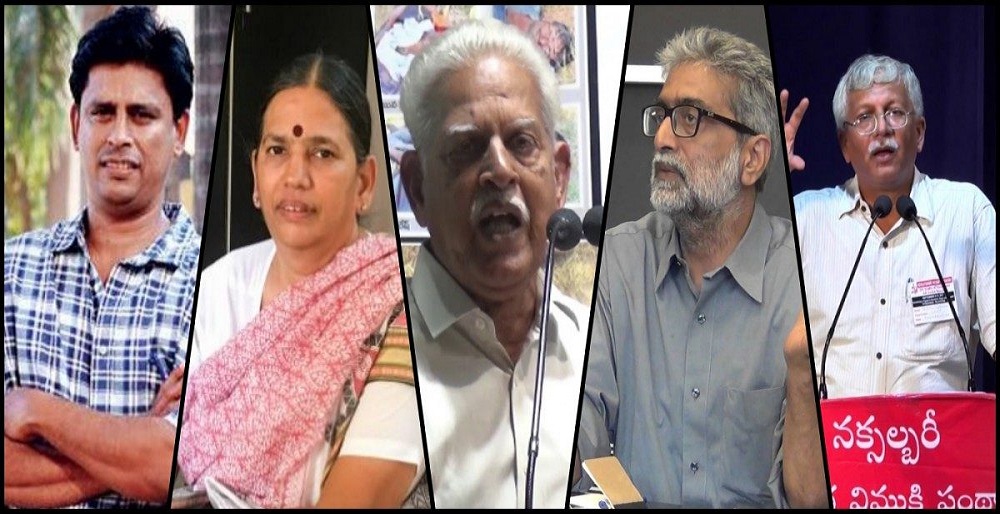
The rise of authoritarian regimes can now be seen as a global phenomenon under neoliberal democracy; from Bolsonaro taking oath in Brazil this year, to Trump shutting down the US government over a border wall, to the cracks in the European Union as Orban challenges its progressive image to Prime Minister Narendra Modi’s targeting of activists under the Urban Naxal catchphrase. In a bid to counter the global rise of the Right and to bring an international focus on the atrocities in India, the SOAS India Society organised an event titled ‘Violence and Dissent in Modi’s India’ on the 8th of February, 2019.
The event aimed to explore the paradoxical nature of modern India. On one hand, India lays claim to be the world’s largest democracy, while on the other, colonial-era sedition laws remain embedded in the country’s framework. The event saw four speakers exploring different aspects of India’s history and the specificity of that history in relation to the arrests which have been underway since January, 2018.
Dr. Romila Thapar, historian and professor Emeritus- Jawaharlal National University and one of the petitioners in the writ petition of the Supreme Court against the arrests, spoke about identity, nationalism, Hindutva and the making of the modern nation-state from a constitutional perspective. She drew a distinction between a secular nation and a Hindu nation for the latter requires the glorification of the Hindu religion and the denigration of Muslim and other non-dominant Hindu and religious identities. She made the point that engaging in a debate around the Hindu nation directly results in the person being labelled as an Urban Naxal partaking in anti-national activities; the label itself an oxymoron under the current political climate.
Dr. Mayur Suresh, Lecturer in Law at SOAS, detailed the evolution of anti-terrorism laws in India, tracing their history all the way back to Punjab Ordinance of 1914. He spoke of the evolution of the law under independent India from 1914 through to AFSPA, TADA, POTA and finally the UAPA, which is being applied in the arrests of the activists today. As such, punishments targeting entire populations for anti-state activities have been in place for over a century.
Susan Abraham, lawyer and activist, gave a narration about how the Bhima Koregaon case had been fabricated and spun into a conspiracy under the full might of the state. Using the experience of her husband Vernon Gonsalves, who is in police custody in this case, she detailed the incidents starting with the Elgar Parishad celebrations, the targeting of the event by Maratha outfits, the initial arrests and the unravelling of the democratic and justice mechanisms in India, which finally saw her husband and several others arrested. As the case now stands, the arrested individuals have been branded as Maoist sympathisers and charged under the Unlawful Activities Prevention Act (UAPA); they have also been suspected of having plotted to assassinate Prime Minister Modi.
Dr. Radha D’souza, spoke about the need to organise internationally against the rise of the Right. She cited the hold of the British Empire across the globe and the Ghadar movement’s organising at a global level against it under the one simple logic- that the Indian sub-continent could not be free unless the British Empire had fallen. In the same vein, activists in India cannot be free unless the narrow idea of democracy under neoliberal economic policies is not targeted at an international level. As such, London provided the perfect melting pot of identities to come together and mobilise internationally.
The interaction with the speakers at the end of the event explored an important facet of the current episode of dissent-silencing, as well as shed light on the reason behind the scale of the episode. The Elgar Parishad celebrations had a very specific call to action when they vowed to end the “Navi Peshvai”; drawing a direct line of the upper-caste atrocities from two hundred years ago to the rise of the Brahmanical upper-caste ideologies in the era of the incumbent government. It is evident that when peoples’ movements rise to challenge caste-the very foundation of India’s society- they are met with the might of the state in supressing these movements. In this case, various arms of the state have come together to taint the success of the Elgar Parishad celebrations because they fear the movement growing into one where casteism is challenged at a national level.
The event was attended by the South Asian diaspora community, as well as by students, academicians and activists across London. A Statement of Solidarity with all the activists targeted in India was signed at the event. The attendees have agreed to continue their mobilisations in the United Kingdom as India counts down to the general elections.
Additional Media resources:
-
The Twitter thread of the event can be found at: https://twitter.com/SOASIndiaSoc/status/1093922257209053184?s=09
-
The Facebook Live transmission of the event is available at: https://www.facebook.com/soasindiasociety/?modal=composer
-
Photos related to the event can be found on Instagram: https://www.instagram.com/soasindiasociety/







































